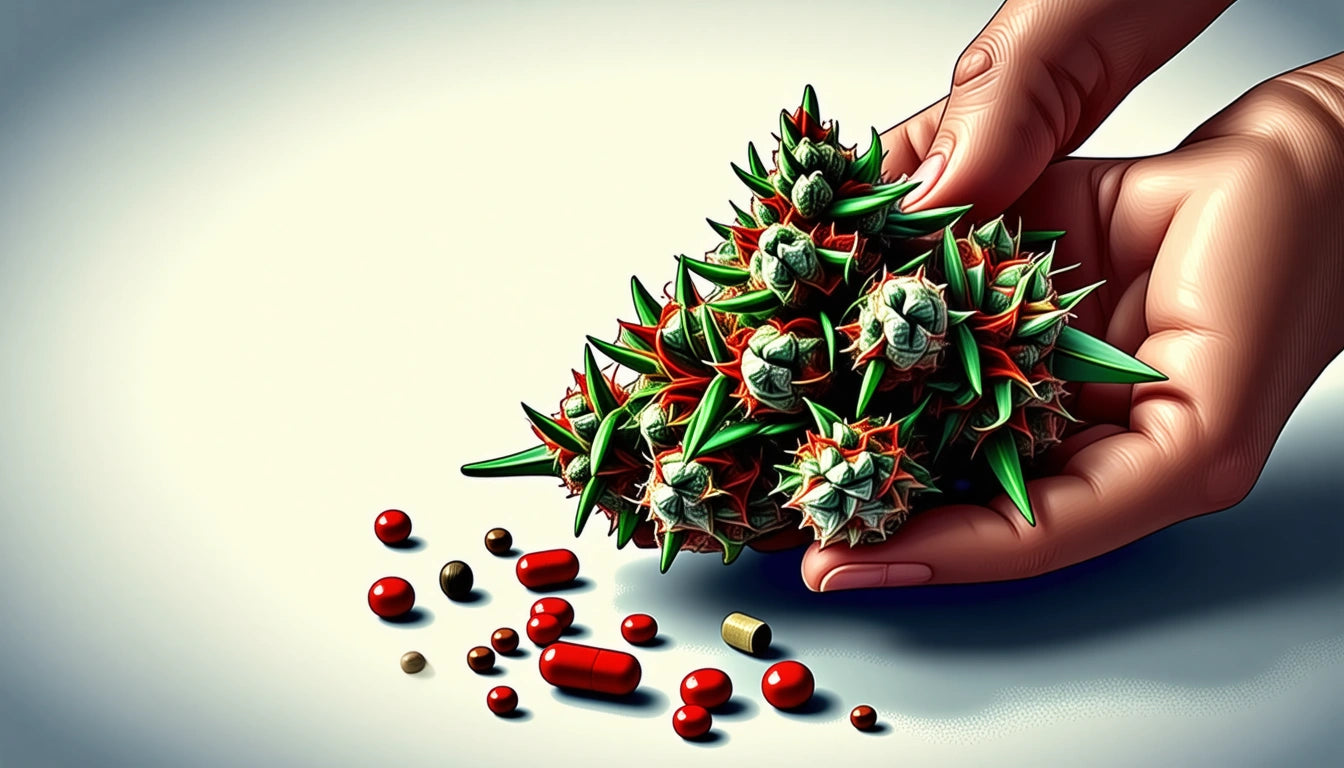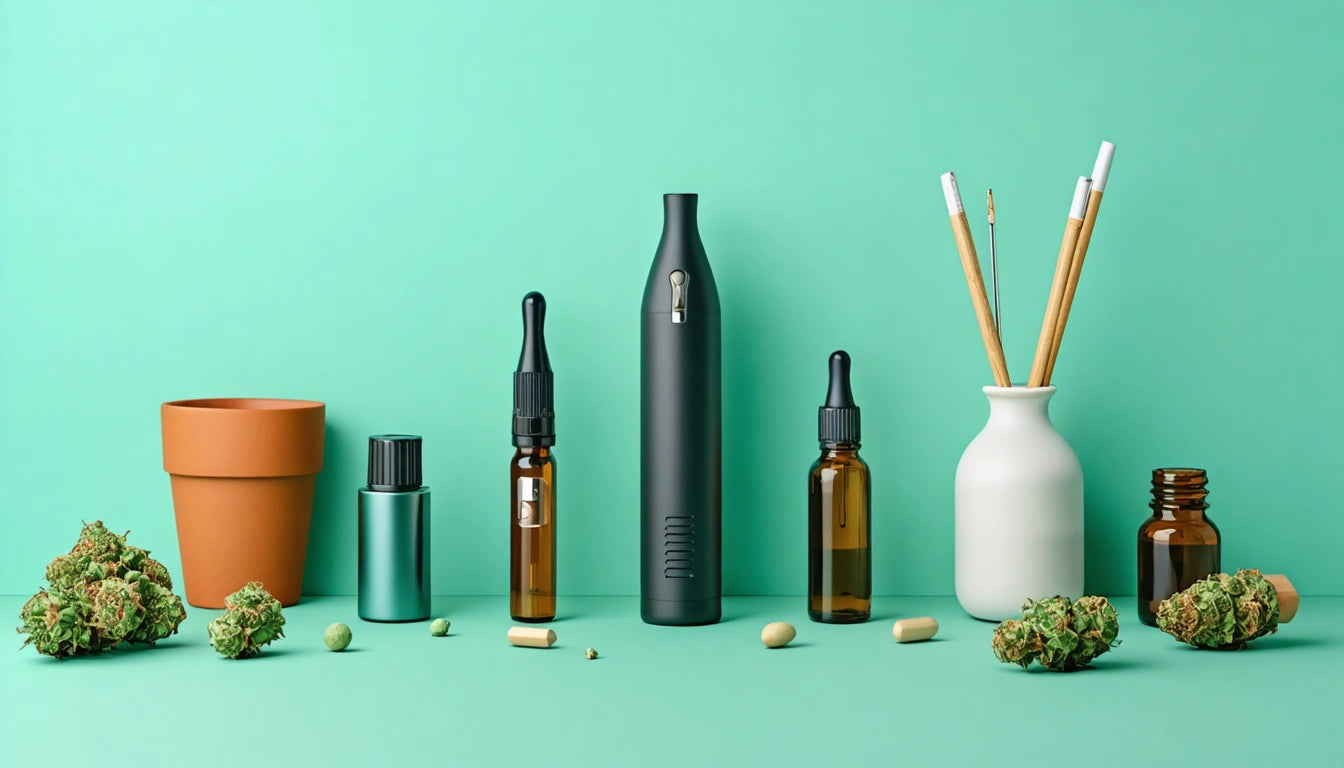Table of Contents
Can You Smoke Weed Before a Blood Test?
Many cannabis users wonder if they can smoke weed before a blood test without affecting their results. The answer depends on several factors, including the type of blood test being conducted, how recently you've consumed cannabis, and what specifically is being tested. Understanding these variables can help you make informed decisions about cannabis use before medical appointments.
Understanding Cannabis and Blood Tests
Blood tests serve various purposes in healthcare, from routine checkups to specific diagnostic procedures. When it comes to cannabis, blood tests can indeed detect THC and its metabolites, though not all standard blood panels automatically screen for these compounds.
The primary psychoactive component in cannabis, delta-9-tetrahydrocannabinol (THC), enters the bloodstream quickly when smoked or vaporized. If you're wondering specifically if you can smoke before a blood test, it's important to understand the distinction between drug screening tests and routine health assessments.
How Cannabis Affects Blood Work Results
Cannabis consumption can potentially influence certain blood work parameters beyond just detecting THC:
- Blood glucose levels may be temporarily affected
- Liver function tests can show slight elevations in some users
- White blood cell counts might be altered temporarily
- Hormone levels, particularly cortisol, can fluctuate
These effects vary significantly between individuals and depend on factors like frequency of use, consumption method, and metabolism. Marijuana's impact on standard blood tests is generally minimal for occasional users but could be more pronounced for regular consumers.
How Long Cannabis Remains Detectable in Blood
For those concerned about cannabis showing up in blood tests, understanding detection windows is crucial. Unlike urine tests that can detect cannabis metabolites for weeks, blood tests have a shorter detection window:
- Single use: 1-2 days
- Occasional use (few times per week): 1-3 days
- Regular use (daily): 2-7 days
- Heavy, chronic use: Up to 30+ days
These timeframes can vary based on individual metabolism, cannabis potency, and consumption method. For more detailed information on detection windows, this resource on cannabis detection in blood provides comprehensive insights.
Types of Blood Tests and Cannabis Detection
Not all blood tests are designed to detect cannabis. Here's a breakdown of common blood tests and their relationship to cannabis detection:
Standard Health Panels
Complete Blood Count (CBC), Basic Metabolic Panel (BMP), and Comprehensive Metabolic Panel (CMP) don't specifically test for THC. However, if you're preparing cannabis products regularly, like using efficient grinding equipment for processing flower, and consuming frequently, some markers like liver enzymes might be affected.
Drug-Specific Screening
These tests explicitly look for THC and its metabolites in your bloodstream. They're commonly used in:
- Employment drug screening (though urine is more common)
- DUI/DWI investigations
- Probation compliance monitoring
- Some insurance assessments
Specialized Medical Tests
Certain medical tests for specific conditions might be affected by recent cannabis use. If you're scheduled for specialized testing, it's worth discussing with your healthcare provider.
Smoking Before Routine Blood Work
If you're wondering can I smoke weed before getting blood work done for routine health assessment, consider these factors:
Fasting Requirements
Some blood tests require fasting, and smoking during fasting periods could potentially affect results. Cholesterol panels, glucose tests, and certain hormone assessments typically require 8-12 hours of fasting.
Doctor-Patient Communication
Being honest with your healthcare provider about cannabis use is important for accurate interpretation of results. Many doctors take a non-judgmental approach to this information and can better assess your health with complete knowledge.
Recommendations for Cannabis Users Facing Blood Tests
If you have an upcoming blood test and are concerned about your cannabis use, consider these practical recommendations:
- For routine health assessments, abstaining 24-48 hours before the test can minimize potential impacts on results
- For drug screening tests, longer abstention periods are necessary based on your usage patterns
- Be honest with your healthcare provider about your cannabis consumption
- If you use cannabis medicinally, discuss potential testing implications with your doctor
- Stay well-hydrated before blood tests, as proper hydration helps ensure accurate results
Understanding the relationship between cannabis use and blood testing can help you make informed decisions about your health management. While occasional cannabis use typically has minimal impact on routine blood work, being transparent with healthcare providers ensures you receive the most appropriate care and accurate test interpretations.
Remember that medical and legal standards regarding cannabis testing continue to evolve as more research emerges and as legal frameworks adapt to changing cannabis policies across different regions.











Leave a comment
All comments are moderated before being published.
This site is protected by hCaptcha and the hCaptcha Privacy Policy and Terms of Service apply.